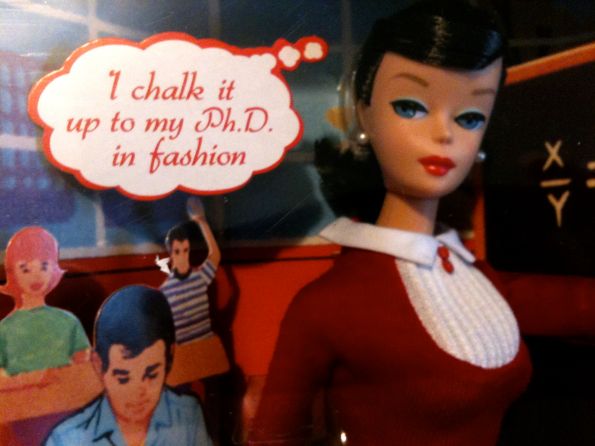Archive
A Pointed note on Martin Luther King, Jr Day
Three years ago I was out for a walk in Haiti when I met this boy who asked me to photograph him pointing to God. Aggrieved by the president’s recent disrespectful comments about Haiti, I am posting this as a reminder of what even the youngest of Haitian children know: There is a power higher than that of any president.
Becky Jaffe: Resources to #Resist
This is a guest post by Becky Jaffe.
Per your request, I drafted a quick list of progressive organizations that we will want to support now more than ever. This list of national organizations is by no means comprehensive, just a good place to start if you want to get plugged in to community organizations that build power for the most marginalized sectors of our society. Each of these is a clickable link that will take you directly to the organization’s website so you can learn more about their mission. Please add to this list and circulate widely. I will be creating a Bay Area-specific list soon for people who want to support local community organizations and I encourage you to make a similar list for your region.
Let’s get busy supporting each other, people! We have our work cut out for us and much joyful organizing ahead.
Immigrant/Refugee rights:
- National Network for Immigrant and Refugee Rights
- National Immigration Project of the National Lawyers’ Guild
- National Immigration Law Center
- Catholic Charities
- the New American Leaders Project
- Presente
- Define American
Civil Rights, social justice and legal defense organizations:
- CAIR, the Council on American-Islamic Relations
- SURJ, Showing Up for Racial Justice
- NAACP, National Association for the Advancement of Colored People
- Black Lives Matter
- the Anti-Defamation League
- Race Forward
- Fred T. Korematsu Institute for Civil Rights and Education
- Bend the Arc: a Jewish partnership for Justice
- Center for Constitutional Rights
- Human Rights Watch:United States
- ACLU, the American Civil Liberties Union
- NLG, the National Lawyer’s Guild
- Legal Aid Society
- SPLC the Southern Poverty Law Center
- The Innocence Project
- Schools Not Prisons
- Anti-Eviction Mapping Project
- SEIU, Service Employees International Union
- Planned Parenthood
- National Organization for Women
LGBTQ rights:
- GLAAD: Gay And Lesbian Alliance Against Defamation
- National Center for Lesbian Rights
- Human Rights Campaign
- Lambda Legal Defense and Education Fund
- Transgender Law Center
Disability rights:
Building democracy:
- Women’s March on Washington: 10 Actions for the first 100 Days
- the Equal Justice Society
- The Highlander Research and Education Center
Fight for the Future - Indivisible: Former congressional staffers reveal best practices for making Congress listen
- Common Cause
- FAIR: Fairness and Accuracy in Reporting
- Center for Digital Democracy
- Brennan Center for Justice
- Public Citizen
- Inequality Media
Environmental organizations:
Is tourism in Haiti inherently exploitative?
I recently returned from Haiti, where I was a tourist traveling around the country for 6 days with my friends Jamie and Becky. As I spent time there, I felt increasingly aware of the difficult if not miserable spot that the country as a whole finds itself in, even though there are of course wonderful and incredibly beautiful and creative things happening too: art is everywhere.
Everyone knows about the 2010 earthquake which devastated the capital Port Au Prince – which was indeed terrible and its ramifications are still being felt – that natural disaster is really only one more thing for the Haitians to deal with, on top of a long and excruciating history of manmade, political and human disasters.
I read the book Mountains Beyond Mountains while I was traveling, upon the recommendation of a bunch of my friends. It’s putatively the story of a white doctor from Boston, Paul Farmer, who is trying his best to enlist a growing group of doctors and philanthropists to help the deeply impoverished town of Cange in Haiti achieve state-of-the-art healthcare. It’s an impressive book, and beautifully written, and doesn’t shy away from frank discussions of how the United States has meddled with and manipulated the politics of Haiti to its own advantage. You should all read it.
One of the most memorable scenes from the book, at least for me, is when the writer discusses the juxtaposition of spending one day in Cange in Haiti and then flying directly to New York, or maybe Paris, but in any case a glamorous, rich, first-world city, and how it seems like two bizarrely separate worlds. Farmer says that no, in fact, it’s exactly what you’d expect – that there’s a direct line between the poverty of Haiti and the richness of New York. New York is rich in part because Haiti is poor, and we New Yorkers depend, even if invisibly, on exploitation of places like Haiti to stay rich. When you concentrate wealth in one place, you are concentrating poverty as well.
That brings me to my question today. Is it inherently exploitative to be a tourist in Haiti?
Reasons it is:
- First and foremost, as Americans we can choose to visit Haiti, and then return after 6 days. Haitians cannot choose to visit us for 6 days, even if they had the money to do it. And again, that discrepancy is directly due to U.S. foreign policy.
- American tourists like myself are impossibly rich and powerful compared to the people we interact with in Haiti. That creates a weird and deep distance between people. It means that everyone on the street is aware of me and nobody fucks with me because the consequences for them would be dire. That’s what power looks like. As a result, t may be impossible to actually have a normal human relationship with a native Haitian.
- As a white person, you pay something like 10 times the normal costs of anything, which is both strange and totally understandable, but in any case it means that you are seen as a piggy bank by anyone with a service or a good to sell, which is pretty much almost anyone you meet.
- There aren’t very many tourists in Haiti. All the white people we met there were there on religious or charitable missions, or worked for the UN, or were trying to set up businesses along the lines of Etsy for Haitian folk art, or are themselves art collectors. That adds to the uncomfortable sense of dependency you feel as a tourist.
- When you are at a hotel, you are being served by Haitians. It’s impossible not to see the historical racial symbolism of this, given that Haitians were brought from West Africa as slaves to the French, and not to mention the more recent history which has made American influence so undermining.
- There’s a reverse sex tourism industry in Haiti, which is to say that middle-aged white women are known to go to Haiti as well as the Dominican Republic to pay for sex with young men. That fact further clouds the possibility, at least for me, of even having a single conversation in which the goal is non-transactional. How do you know if your joke is actually funny? Or if the cultural exchange you are happily engaged in is truly reciprocal? How could it be?
- Conclusion: it is in fact inherently exploitative to be a tourist in Haiti, and it’s not something you can choose not to participate in.
On the other hand, here are a few reasons I’d argue against my own conclusion:
- First and foremost, you are what you are as an American, even if you’re not in Haiti. You are just more aware of what that means to Haitians when you are in Haiti. In other words, if the decadence of ample food, and wifi, and excellent health care is in part due to the impoverished state of Haiti, maybe it’s good you are made aware of that.
- Haitians desperately need money, and tourists have money. If lots of tourists went to Haiti, it might be better for Haiti than a bunch of money coming in the form of aid.
- My friend Becky came with us to Haiti, and she stayed a few extra days and connected with a Haitian biologist and nerded out completely in a national park (she’s a huge biology nerd and nature photographer). It seems to me that, if it is possible to cross the human divide, and get out of a transactional conversation and into another place, it might happen in the context of a scientific discussion.
- I’m not a biology nerd, but I love music. I felt like the closest I came to normal human interaction was through discussing and enjoying live music.
- It’s really fun to travel, even if you learn sad things. You become more aware and more grateful, and you bring that back to your community and your family. There’s something to be said for simple cultural awareness. Plus, now I really care about Haiti, which maybe is irrelevant, but may someday become relevant, who knows.
I’d love to hear your thoughts.
Update. A comment from Jamie:
Fundamentally, I do and always have agreed to your point of exploitation. I knew we would be weird voyeurs going in to the trip, and as we discussed on the last day, Cathy, we were both acutely aware of how it would look if we started taking pictures of Haitians and the streets from inside of our fancy 4-by-4. It’s a complicated dynamic. And I think you’re right that it is nearly impossible to have a normal, balanced relationship there; I felt similarly while traveling around West Africa. It’s like we have a bank account and a green card attached to our foreheads, and it can be difficult to trust that someone is seeing us beyond that. Even if they have no ulterior motives other than being our friend, that trust is hard to grasp and hang on to.All of that said, however, I do believe that it is incredibly important to spend time in countries and cultures that are different from our own. And I believe even more fervently that we should visit those countries with a mind to experience and enjoy rather than “save” it through mission-based organizations. That’s not to say that all aid is bad aid (on the contrary, many aid orgs and NGOs are very, very important!), but I do push back against the notion that one should always attach a mission to a visit. I’ve found that going somewhere as a volunteer or aid worker puts an even bigger wall between cultures (“I am here to help you because I have the means to help you and it is clear you can’t help yourself”). I strongly believe that just sitting, listening, and learning without the motive to “save” is one of the only ways of conducting a fair and balanced cultural exchange. I want to listen first, not fix first. Once I listen, and begin to understand (as if I ever could…), only then do I feel comfortable enough to think about working in/for a country.Additionally, on the notion of choosing to vacation in a non-traditional spot that is so clearly economically and politically struggling, is it better to only travel to first world, highly developed countries and ignore that others exist? Should we blindly trust the media (and all of our friends, relatives, etc) that constantly tells us that a country is “bad” and avoid them? How will we change the discourse surrounding cultural and economic imbalances without having any first-hand experience? Are we perpetuating a notion that we are “too good” to visit a country that is struggling to stand on solid ground?It’s all a complicated notion. And on a specific note, I’d love to open the floor a little on your #5 exploitative point (“When you are at a hotel, you are being served by Haitians. It’s impossible not to see the historical racial symbolism of this, given that Haitians were brought from West Africa as slaves to the French, and not to mention the more recent history which has made American influence so undermining.”). True. I think it’s important that we are aware of that dynamic. On the other hand, what would it look like if we were being served by ex-pats? Would we not be rebelling that we are not supporting Haitians and the native economy? That the ex-pats are just making a place for other ex-pats to work and remove all Haitians from the operation? Tricky. I’m interested in hearing both of your thoughts on that.
Nerd catcalling
This is a guest post by Becky Jaffe.
It has come to my attention that I am a nerd. I take this on good authority from my students, my friends, and, as of this morning, strangers in a coffee shop. I was called a nerd three times today before 10:30 am, while I was standing in line for coffee – which is to say, before I was caffeinated, and therefore utterly defenseless. I asked my accusers for suggestions on how to be less nerdy. Here was their helpful advice:
Guy in coffee shop: “Wear makeup and high heels.”
Another helpful interlocutor: “Use smaller words.”
My student, later in the day: “Care less about ideas.”
A friend: “Think less like NPR and more like C-SPAN.”
What I wish someone had said: “Is that a dictionary in your pocket or are you happy to see me?”
What I learned today is that if I want to avoid being called a nerd, I should be more like Barbie. And I don’t mean the Professor Barbie version, which – get this – does not exist. When I googled “Professor Barbie,” I got “Fashion Professor Barbie.”
So many lessons in gender conformity for one day! This nerd is taking notes.
Going to Haiti next week
I’m off to Haiti next week, for a week, with my buddie and bandmate Jamie Kingston. I was trying to figure out what to do with the blog while I was gone, and so I asked sometimes-guest blogger Becky Jaffe to cover for me (some of you may remember her Hip Hop’s Cambrian Explosion series which to this day gets traffic) but by the time I’d explained my trip, she’d decided to come along too! Which is awesome. We’re staying at the Hotel Oloffson in Port au Prince:
So two things. First, if you know of fun stuff to do in the Port au Prince area, please tell me. I tend to like talking to people, and music and crafts, and Becky and Jamie are more into nature and insects.
Second, if you have a lovely or inspiring suggestion for what should happen to mathbabe next week while we’re away, please tell me!
A visit to Fair Foods in winter
It’s been a few days since I last posted. The reason was my trip to WPI for my talk (slides from my talk available here), and then on to Boston, where I stayed with my good friends over at Fair Foods in Dorchester, near Fields Corner.
I mentioned Fair Foods before, for example in this post from two and a half years ago. I worked with the director Nancy in high school back in 1988 and 1989, when me and my sometimes guest blogger Becky would go work a couple of days a week. Here’s a picture I stole from the site with Becky in overalls:

We’d drive at 6am with Nancy and her beat up old box truck to the Chelsea Produce Market and ask for donations of pallets of vegetables that were too old to be sold to supermarkets but still fresh enough to be eaten that same day. We’d also grab similarly oldish bread from an Arnold’s Bread bakery in Cambridge and then we’d distribute the food at “dollar bag” sites, raking in less than the amount of money we’d spent on gas and insurance for the truck.
The program is still going, scraping by with sometime grants and contributions, many from ex-volunteers like me (feel free to send a contribution yourself – a check made out to “Fair Foods” and mailed to PO Box 220168, Dorchester, MA 02122 would be very welcome). And the hard working people there have my undying love and admiration for their incredible commitment and work ethic. To give you some idea, they live in an old drafty Victorian and heat their house with woodstoves. All I can say about this past weekend is thank god for union suits and wool socks.
But here’s the thing, you get a pretty ground-level view of hardship and poverty working in a program like that, especially when you’ve done it for more than 25 years, and especially when you see increasingly long lines of people willing to wait for vegetables and bread in bitterly cold weather. Business is booming this winter.
Many of the customers of Fair Foods are old friends by now, they’ve been coming weekly to various sites for many years to feed their children and their grandchildren. Many of them are immigrants with very little money, and the $2 it now costs for a big bag of vegetables and fruit is a great deal.
I guess my point is this. I worked for Fair Foods back in the crack epidemic of the late 1980’s and the early 1990’s, which was a hellish time for Dorchester and of course other parts of the country. But nowadays, when the crime rate is so much lower, we’re seeing another kind of hell. It’s a lot quieter.
It’s incredibly sad to see how much more demand there is for salvaged food now than there was 25 years ago, and how many of those old beautiful Victorian family houses are abandoned or at risk of foreclosure, and how few cars there are on the street compared to then. And most especially, how many of the kids I used to play with on the street are now in prison.
Before I left Saturday I made a delicious soup out of the vegetables that Jason and Liz had collected from the Chelsea Market, and I made banana bread that the banana guy had given them. A little boy from the neighborhood who came to talk to Nancy about his report card ate about half of that banana bread in one sitting. A small attempt to try to feed the people who work so hard to feed other people.
It makes me wonder what kind of country we’ve created where people are so hungry, we’re reducing food stamps, and Jamie Dimon is getting an extra big bonus. Where is the justice in that?
“Here and Now” is shilling for the College Board
Did you think public radio doesn’t have advertising? Think again.
Last week Here and Now’s host Jeremy Hobson set up College Board’s James Montoya for a perfect advertisement regarding a story on SAT scores going down. The transcript and recording are here (hat tip Becky Jaffe).
To set it up, they talk about how GPA’s are going up on average over the country but how, at the same time, the average SAT score went down last year.
Somehow the interpretation of this is that there’s grade inflation and that kids must be in need of more test prep because they’re dumber.
What is the College Board?
You might think, especially if you listen to this interview, that the college board is a thoughtful non-profit dedicated to getting kids prepared for college.
Make no mistake about it: the College Board is a big business, and much of their money comes from selling test prep stuff on top of administering tests. Here are a couple of things you might want to know about College Board through its wikipedia page:
Consumer rights organization Americans for Educational Testing Reform (AETR) has criticized College Board for violating its non-profit status through excessive profits and exorbitant executive compensation; nineteen of its executives make more than $300,000 per year, with CEO Gaston Caperton earning $1.3 million in 2009 (including deferred compensation).[10][11] AETR also claims that College Board is acting unethically by selling test preparation materials, directly lobbying legislators and government officials, and refusing to acknowledge test-taker rights.[12]
Anyhoo, let’s just say it this way: College Board has the ability to create an “emergency” about SAT scores, by say changing the test or making it harder, and then the only “reasonable response” is to pay for yet more test prep. And somehow Here and Now’s host Jeremy Hobson didn’t see this coming at all.
The interview
Here’s an excerpt:
HOBSON: It also suggests, when you look at the year-over-year scores, the averages, that things are getting worse, not better, because if I look at, for example, in critical reading in 2006, the average being 503, and now it’s 496. Same deal in math and writing. They’ve gone down.
MONTOYA: Well, at the same time that we have seen the scores go down, what’s very interesting is that we have seen the average GPAs reported going up. So, for example, when we look at SAT test takers this year, 48 percent reported having a GPA in the A range compared to 45 percent last year, compared to 44 percent in 2011, I think, suggesting that there simply have to be more rigor in core courses.
HOBSON: Well, and maybe that there’s grade inflation going on.
MONTOYA: Well, clearly, that there is grade inflation. There is no question about that. And it’s one of the reasons why standardized test scores are so important in the admission office. I know that, as a former dean of admission, test scores help gauge the meaning of a GPA, particularly given the fact that nearly half of all SAT takers are reporting a GPA in the A range.
Just to be super clear about the shilling, here’s Hobson a bit later in the interview:
HOBSON: Well – and we should say that your report noted – since you mentioned practice – that as is the case with the ACT, the students who take the rigorous prep courses do better on the SAT.
What does it really mean when SAT scores go down?
Here’s the thing. SAT scores are fucked with ALL THE TIME. Traditionally, they had to make SAT’s harder since people were getting better at them. As test-makers, they want a good bell curve, so they need to adjust the test as the population changes and as their habits of test prep change.
The result is that SAT tests are different every year, so just saying that the scores went down from year to year is meaningless. Even if the same group of kids took those two different tests in the same year, they’d have different scores.
Also, according to my friend Becky who works with kids preparing for the SAT, they really did make substantial changes recently in the math section, changing the function notation, which makes it much harder for kids to parse the questions. In other words, they switched something around to give kids reason to pay for more test prep.
Important: this has nothing to do with their knowledge, it has to do with their training for this specific test.
If you want to understand the issues outside of math, take for example the essay. According to this critique, the number one criterion for essay grade is length. Length trumps clarity of expression, relevance of the supporting arguments to the thesis, mechanics, and all other elements of quality writing. As my friend Becky says:
I have coached high school students on the SAT for years and have found time and again, much to my chagrin, that students receive top scores for long essays even if they are desultory, tangent-filled and riddled with sentence fragments, run-ons, and spelling errors.
Similarly, I have consistently seen students receive low scores for shorter essays that are thoughtful and sophisticated, logical and coherent, stylish and articulate.
As long as the number one criterion for receiving a high score on the SAT essay is length, students will be confused as to what constitutes successful college writing and scoring well on the written portion of the exam will remain essentially meaningless. High-scoring students will have to unlearn the strategies that led to success on the SAT essay and relearn the fundamentals of written expression in a college writing class.
If the College Board (the makers of the SAT) is so concerned about the dumbing down of American children, they should examine their own role in lowering and distorting the standards for written expression.
Conclusion
Two things. First, shame on College Board and James Montoya for acting like SAT scores are somehow beacons of truth without acknowledging the fiddling that goes on time and time again by his company. And second, shame on Here and Now and Jemery Hobson for being utterly naive and buying in entirely to this scare tactic.
Is That a Math Poem in Your Pocket?
This is a guest post by Becky Jaffe.
Today is National Poem in your Pocket Day, a good day to wear extra pockets.
April also just so happens to be National Poetry Month and Mathematics Awareness Month. Good gods, such abundance! In celebration of the marriage of the left and right hemispheres of the brain, I bring you a selection of poems dedicated to the fine art of mathematics – everything from the mystical to the sassy. Enjoy!
——
from Treatise on Infinite Series by Jacob Bernoulli
Even as the finite encloses an infinite series
And in the unlimited limits appear,
So the soul of immensity dwells in minutia
And in narrowest limits no limits inhere.
What joy to discern the minute in infinity!
The vast to perceive in the small, what divinity!
——
Biblical PI
A Biblical version of pi
Is recorded by some unknown guy
In “Kings,” * where he mentions
A basin’s dimensions —
Not exact, but a pretty good try.
* I Kings 7:23
——
Sir Isaac Newton by Paul Ritger
While studying pressures and suctions,
Sir Isaac performed some deductions,
“Fill a mug to the brim, it
Will then reach a limit,
So easily determined by fluxions.”
——
A New Solution to an Old Problem by Eleanor Ninestein
The Topologist’s child was quite hyper
‘Til she wore a Moebius diaper.
The mess on the inside
Was thus on the outside
And it was easy for someone to wipe her.
——
Threes by John Atherton
I think that I shall never c
A # lovelier than 3;
For 3 < 6 or 4,
And than 1 it’s slightly more.
All things in nature come in 3s,
Like … , trio’s, Q.E.D.s;
While $s gain more dignity
if augmented 3 x 3 —
A 3 whose slender curves are pressed
By banks, for compound interest;
Oh, would that, paying loans or rent,
My rates were only 3%!
3² expands with rapture free,
And reaches toward infinity;
3 complements each x and y,
And intimately lives with pi.
A circle’s # of °
Are best ÷ up by 3s,
But wrapped in dim obscurity
Is the square root of 3.
Atoms are split by men like me,
But only God is 1 in 3.
——
Valentine
You disintegrate my differential,
You dislocate my focus.
My pulse goes up like an exponential
whenever you cross my locus.
Without you, sets are null and void —
so won’t you be my cardioid?
——
An Integral Limerick by Betsy Devine and Joel E. Cohen
Here’s a limerick —
Which, of course, translates to:
Integral z-squared dz
from 1 to the cube root of 3
times the cosine
of three pi over 9
equals log of the cube root of ‘e’.
——
PROF OF PROFS By Geoffrey Brock
I was a math major—fond of all things rational.
It was the first day of my first poetry class.
The prof, with the air of a priest at Latin mass,
told us that we could “make great poetry personal,”
could own it, since poetry we memorize sings
inside us always. By way of illustration
he began reciting Shelley with real passion,
but stopped at “Ozymandias, King of Kings;
Look on my Works, ye Mighty, and despair!”—
because, with that last plosive, his top denture
popped from his mouth and bounced off an empty chair.
He blinked, then offered, as postscript to his lecture,
a promise so splendid it made me give up math:
“More thingth like that will happen in thith clath.”
——
The last poem in today’s guest post is by a mathematician who proved the Kissing Circles Theorem, which states that if four circles are all tangent to each other, then they must intersect at six distinct points. Frederick Soddy wrote up his proof in the form of a poem, published in 1936 in Nature magazine.
The Kiss Precise By Frederick Soddy
For pairs of lips to kiss maybe
Involves no trigonometry.
This not so when four circles kiss
Each one the other three.
To bring this off the four must be
As three in one or one in three.
If one in three, beyond a doubt
Each gets three kisses from without.
If three in one, then is that one
Thrice kissed internally.
Four circles to the kissing come.
The smaller are the benter.
The bend is just the inverse of
The distance form the center.
Though their intrigue left Euclid dumb
There’s now no need for rule of thumb.
Since zero bend’s a dead straight line
And concave bends have minus sign,
The sum of the squares of all four bends
Is half the square of their sum.
To spy out spherical affairs
An oscular surveyor
Might find the task laborious,
The sphere is much the gayer,
And now besides the pair of pairs
A fifth sphere in the kissing shares.
Yet, signs and zero as before,
For each to kiss the other four
The square of the sum of all five bends
Is thrice the sum of their squares.
in Nature, June 20, 1936
——
The publication of this proof was followed six months later with an additional verse by Thorold Gosset, who generalized the case.
The Kiss Precise (generalized) by Thorold Gosset
And let us not confine our cares
To simple circles, planes and spheres,
But rise to hyper flats and bends
Where kissing multiple appears,
In n-ic space the kissing pairs
Are hyperspheres, and Truth declares,
As n + 2 such osculate
Each with an n + 1 fold mate
The square of the sum of all the bends
Is n times the sum of their squares.
in Nature, January 9, 1937.
——
This was further amended by Fred Lunnon, who added a final verse:
The Kiss Precise (Further Generalized) by Fred Lunnon
How frightfully pedestrian
My predecessors were
To pose in space Euclidean
Each fraternising sphere!
Let Gauss’ k squared be positive
When space becomes elliptic,
And conversely turn negative
For spaces hyperbolic:
Squared sum of bends is sum times n
Of twice k squared plus squares of bends.
——
These three raised the bar for presentation of mathematical proof and dialogue, throwing down the gauntlet to modern mathematicians to versify their findings. Who, dear readers, is up for the challenge?
Happy Poem in Your Pocket Day!
Nerd Nite: A Drunken Venue for Ideas
MathBabe recently wrote an article critical of the elitist nature of Ted Talks, which you can read here. Fortunately for her, and for the hoi polloi everywhere clamoring for populist science edutainment, there is an alternative: Nerd Nite. Once a month, in cities all over the globe, nerds herd into a local bar and turn it into a low-brow forum for innovative science ideas. Think Ted Talks on tequila.
Each month, three speakers present talks for 20-30 minutes, followed by questions and answers from the invariably sold-out audience. The monthly forum gives professional and amateur scientists an opportunity to explain their fairly abstruse specialties accessibly to a lay audience – a valuable skill. Since the emphasis is on science entertainment, it also gives the speakers a chance to present their ideas in a more engaging way: in iambic pentameter, in drag with a tuba, in three-part harmony, or via interpretive dance – an invaluable skill. The resulting atmosphere is informal, delightfully debauched, and refreshingly pro-science.
Slaking our thirst for both science education and mojitos, Nerd Nite started small but quickly went viral. Nerd Nites are now being held in 50 cities, from San Francisco to Kansas City and Auckland to Liberia. You can find the full listing of cities here; if you don’t see one near you, start one!
Last Wednesday night I was twitterpated to be one of three guest nerds sharing the stage at San Francisco’s Nerd Nite. I put the chic back into geek with a biology talk entitled “Genital Plugs, Projectile Penises, and Gay Butterflies: A Naturalist Explains the Birds and the Bees.”
A video recording of the presentation will be available online soon, but in the meantime, here’s a tantalizing clip from the talk, in which Isabella Rossellini explains the mating habits of the bee. Warning: this is scientifically sexy.
I shared the stage with Chris Anderson, who gave a fascinating talk on how the DIY community is building drones out of legos and open-source software. These DIY drones fly below government regulation and can be used for non-military applications, something we hear far too little of in the daily war digest that passes for news. The other speaker was Mark Rosin of the UK-based Guerrilla Science project. This clever organization reaches out to audiences at non-science venues, such as music concerts, and conducts entertaining presentations that teach core science ideas. As part of his presentation Mark used 250 inflated balloons and a bass amp to demonstrate the physics concept of resonance.
If your curiosity has been piqued and you’d like to check out an upcoming Nerd Nite, consider attending the upcoming Nerdtacular, the first Nerd Nite Global Festival, to be held this August 16-18th in Brooklyn, New York.
The global Nerdtacular: Now that’s an idea worth spreading.
Aunt Orthoptera: Advice from an Arthropod
Greetings from Aunt Orthoptera!
(Photo by Becky Jaffe)
This week I am guest blogging for Aunt Pythia, answering all of your queries from the perspective of a variety of insect species, naturally.
——
Dear Aunt Orthoptera,
My friend just started an advice column. She says she only wants “real” questions. But the membrane between truth and falsity is, as we all know, much more porous and permeable than this reductive boolean schema. What should I do?
Sincerely,
Mergatroid
P.S. I have a friend who always shows up to dinner parties empty-handed. What should I do?
Dear Mergatroid,
As I grant your point entirely, I will address only your postscript. What should you do with a friend who shows up to dinner parties empty-handed? Fill her hands with food. As an ant, I have two stomachs: a “social stomach,” and a private stomach. When I pass one of my sisters on our path, we touch each other’s antennae and communicate our needs via pheromones. If she is hungry, we kiss, a process unimaginatively called “trophallaxis” by your scientists. I feed her from my social stomach, and I trust she will do the same for me later – or if not her, exactly, another sister in whom the twin hungers for self-interest and interdependence coexist.
Anatomy as metaphor,
Aunt Orthoptera aka Ms. Myrmecology
(Photo by Becky Jaffe)
——
Dear Aunt Orthoptera,
I am struggling with emotional loneliness. Do you think it is possible to be happy – or even just productive – in life without a stable romantic relationship? If so, how? I have a couple close friends I can talk with, but they are in their own relationships and they are often too busy to have time to talk. I am in my early thirties and never had a girlfriend despite trying for nearly a decade. I have tried speed-dating, been on eharmony, match, ok cupid, asked friends to set me up, asked out a classmate in grad school, joined meetup groups. I am a nice guy but I have my flaws (nothing horrible) – I am kind of introverted, somewhat boring, and am consumed with my career (I’m untenured). It is so hard to meet people that I am compatible with – especially since I am a shy guy (perhaps it’s not surprising I am a math professor – I LOVE my job, by the way). I found ok cupid to be useful for identifying possibly compatible women but most women don’t respond to my messages. I was lucky to manage to get to go on first (and last) dates with two women I messaged on ok cupid last year, and was interested in going on more dates with both, but both of them declined, even though they both told me I seemed like a good person – “you seem like one of the nicest guys I met” is a direct quote, but that they didn’t feel there was any “chemistry”. This month I have been heartbroken over one of them. All this has been affecting my productivity.
Sincerely,
Singleton
Dear Singleton,
In my anthropological studies of humans, I have observed that you are yearning creatures. Your inexorable primateness destines you to a life of longing for social contact. As a solitary insect, I both pity and admire this craving for connection with your kind. My advice to you is to have compassion for your fundamental humanness. Your yearning for pair bonding is normal; it’s in your nature to want to entangle yourself with another. As creatures born of DNA, pair bonding operates at both the molecular level (e.g. Cytosine pair-bonds with Guanine) and the organismal level (woman to man, man to man, woman to woman).
(Photo: Double Helix by Becky Jaffe)
I suspect there’s another lonely strand of DNA out there for you, worth waiting for.
(Photo by Becky Jaffe)
I hope you find your mate!
Flirting with Sociobiology,
Aunt Orthoptera
——
Dear Aunt Orthoptera,
Do you have any self-soothing advice for when self-doubt, lack of confidence, and depression begin to take over?
Sincerely,
Feeling Very Small
Dear FVS,
As a tiny butterfly, I can assure you that it is ok to feel small. Here is my advice to you when you feel this way: Don’t just stop and smell the flowers, nuzzle in them.
(Photo by Becky Jaffe)
Let your worries float away for a little while and drift toward the sweetest thing you can find. When viewed through a compound lens, the whole world can look like nectar.
Spring springs eternal,
Aunt Orthoptera aka Lady Lepidoptera
——
Dear Aunt Orthoptera,
How will you enquire into that which you do not know?
Meno
Excellent question, Musing Meno.
The answer is: with great patience, dear Grasshopper.
(Photo by Becky Jaffe)
Next week, the inimitable Aunt Pythia will return with human advice for you. You can use the form below to submit questions.
Wishing you harmony in your hive and honey to thrive,
Aunt Orthoptera















